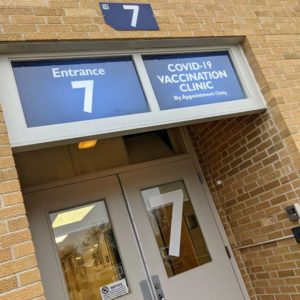
Long COVID and vaccinations
The personal part of this is short: I’m doing just fine.
I would post a picture of my vaccine site, but it looks like an arm. No redness and no swelling; the vague discomfort of yesterday has resolved completely. I have taken no more naproxen.
I’ve felt fine all day – no temperature, no headache despite spending the entire day building a website without my blue-blockers, nothing out of the sort. I almost forgot that I’d promised an update — and another answer to an unanswered question — this morning.
I’ve been following a lot of my physician friends and remembering how many people I know. A lot of them have been vaccinated recently. Some of them have had aches and pains or headaches, but everything seems to have settled within 24 hours.
The vaccine’s mRNA in its liposomal envelope has by now been delivered to the protein factories within my own cells, translated into instructions, and discarded. It’s not particularly stable, which has been a limiting factor in mRNA vaccines until now.
I have visions of my immune system printing off tiny “Wanted” posters with a picture of the spike protein on it and passing them around. I hope my B cells are taking a good solid look. I hope my T cells are remembering. I hope that at some point we’ll have some idea of what level of antibody titers are protective.
I hope we keep listening to science.
Things I don’t know about this vaccine but I trust science to answer eventually:
If I already had COVID-19, will the vaccine still help me?
Short answer: We don’t know for sure, but probably.
Long answer: the rest of this post.
I happen to know that I almost certainly have not had COVID-19. Not only because I’ve been asymptomatic (see previous post regarding asymptomatic/presymptomatic carriers), but because I’ve been tested – with PCR testing – regularly enough that it’s statistically unlikely I would have accomplished a sufficiently long string of false negatives to have had asymptomatic COVID-19 and missed it.
Translation: Someone shoves a wire Q-tip up my nose on a regular basis, and while one negative test may still be wrong, a whole bunch of negative tests are probably right.
However:
A lot of people I know HAVE had COVID-19. This is about those folks. After all, their immune systems have seen the real actual spike protein and beaten it down, so we know their T-cells and B-cells should be super aware, right? Do they need to get the shot?
Answer: I don’t know for sure — but they will probably need it at some point in time. We don’t know what that ideal point is.
We do know that immunity wanes over time. Those little Wanted posters get ragged around the edges and the old guard – the ones who remember the all-out war your body once waged – turn over for newer cells. After a while the stories get old. After a while, your body forgets.
How long it takes to forget is something we don’t fully understand — and something that can vary widely from person to person. For example, if you have whooping cough, you’ll be pretty much immune to another bout for somewhere between 4 and 20 years (for comparison, the whooping cough vaccine lasts between 4 and 12 years). That’s a pretty huge spread, and we’ve known about Bordetella pertussis for about 115 years (we’ve had a pertussis vaccine in some form for close to 90 of those years).
We’ve known about coronavirus infections for about a year now. We’ve been able to test for coronavirus antibodies for about eight months — but we’ve only had an approved test for neutralizing antibodies (the ones we really care about) since November. We just don’t know at this point how long any immunity lasts for sure — although the tests we do have suggest that people who have COVID-19 produce antibodies for at least 2-3 months — and we really don’t know how long vaccine-mediated immunity lasts.
But an educated guess says that even if you’ve had COVID, getting vaccinated should help stretch your immunity out a little longer.
Update on 1-16-21: The CDC currently states that people who have had COVID may consider waiting for up to 90 days before receiving COVID vaccinations; we have anecdotally seen that people who get their vaccines shortly after recovery have more robust reactions.